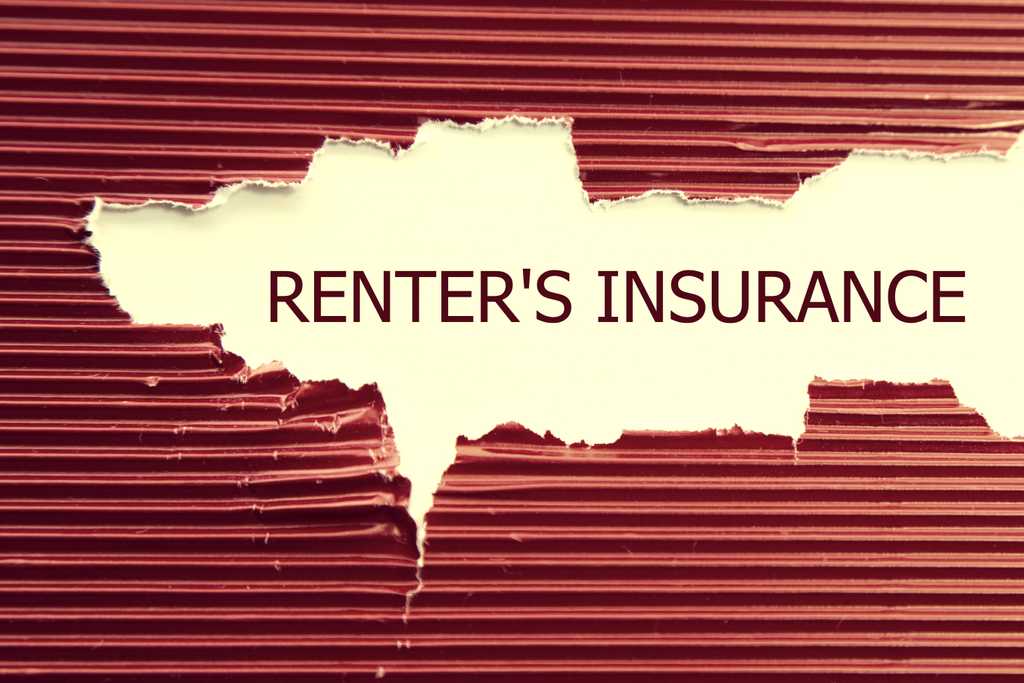Your renters insurance policy will specifically name perils that are covered, such as fire, theft and wind. Renters insurance typically covers common events, such as fire, winds, smoke, volcanos, falling objects and vandalism. Be sure to check to make sure any common events in your area are not excluded from your policy. For example, if you live in an earthquake-prone area, you should consider purchasing earthquake coverage, which is an extra policy. The majority of policies include coverage for theft, but be sure to check the specific policy you are considering.
How much does renter’s insurance cost?
A common excuse for not getting renters insurance is that your possessions are not valuable. But even if you do not have expensive jewelry or electronics, the cost of replacing the majority or even a good portion of your belongings is likely significant. Look in your closet and do a quick mental calculation of repurchasing an entire wardrobe from scratch, including coats, shoes and undergarments. According to the National Association of Insurance Commissioners (NAIC) 2021 report, renters insurance costs an average of $14.9 per month making it very affordable, especially compared to the risk.
You can get a quote for renter's insurance from Lemonade in minutes, and depending on your coverage, you could be insured for as little as $5 per month.
3 main types of renter's insurance
The three main types of renter's insurance cover things like the items you may have lost and the cost for a place to stay if your apartment is uninhabitable. Here are the three main types of coverage:
- Personal property coverage. This includes everything that is inside the apartment, house or condo, such as furniture, clothing, electronics and all personal items. Your policy also covers items stored in a garage, such as skis, bicycles and sporting equipment.
- Loss-of use-coverage. During major events such as a fire or damaged roof, you may not be able to live in your home safely until it is repaired. In this case, a renters policy typically pays for you to live somewhere else until it is safe to live in your home again. For example, your policy may include a specific amount per day based on where you live so you can get a hotel or short-term rental. To ensure your rental insurance provides this benefit, make sure it includes loss of use coverage.
- Liability coverage. If you are held responsible for someone being injured or their property being damaged, then your policy may pay for damages and legal fees up to a certain amount. You may also be covered if someone visiting your home injures themselves, such as by falling on a wet floor, and you are found liable.
What else can personal cover?
While each policy is slightly different, renters insurance generally covers personal property damaged in an event, referred to in insurance terminology as a peril. While all policies cover property in the residence, some policies cover the following additional circumstances and damage:
- Most belongings located outside your home or when traveling. Some policies also include damage to your property located outside your home, such as in your car or storage unit. For example, your policy might cover replacing your laptop that was stolen out of your car. However, damage to your actual automobile is covered by your auto insurance policy. You may also be covered for theft or damage to your property when traveling, such as theft from a hotel or rental car, depending on the policy.
- Certain water damage. Most policies cover water damage that occurs from within the home, such as a pipe bursting or an appliance leaking water. However, some policies may not pay if you are found to be negligent during the peril, such as leaving water on in a bathroom, and causing a flood. If your home were to flood during a rain event or from a nearby river, your renters insurance will likely not cover the flood damage. If you live in a flood-prone area, look for an insurance company that offers a flood policy for renters that covers the type of damage you are at risk for.
- Food spoilage due to outages. During a storm or power outage, or in the case of mechanical issues in your refrigerator, your cold and frozen food may spoil if the electricity is out for more than a few hours. Many renters insurance policies will actually cover the loss of your food, which can quickly become expensive to replace. When comparing policies, look to see if short-circuit damage, which typically includes power outages, is covered. Most policies have a specified amount that they will cover due to this type of loss.
How is replacement value calculated?
After a disaster, you will need to replace any items lost in the disaster, such as clothes and furniture, at their current price. Many renters automatically assume that their renters insurance will provide them with a payout that allows them to head down to the store. However, the amount of payout you receive depends on the specific terms in the policy.
If your policy is replacement cost, then the amount of your payout is determined by how much it will cost you to buy the exact (or close to exact) item at a store tomorrow. However, if your policy is actual cash value, then your payout is lowered by the current value of the item. For example, if your sofa is five years old, then your payout with an actual cash value would be considerably less than the cost to purchase the same sofa. While your payout is less for actual cash value policies, the premium price is also considerably less. The right policy for you depends on your current financial situation.
Are you required to have renters insurance?
You are not required by law to have renters insurance, but in almost every case it makes financial sense for the renter. Additionally, some landlords require renters insurance because it reduces the landlord’s liability and potential for a lawsuit if the renters property is damaged. The requirement is typically included in the lease and often specifies a certain dollar amount of coverage. If you are required to have renters insurance and either do not get the policy or let it lapse, then you may be in breach of your lease.
Because some states require that landlords pay for their tenants to live elsewhere if the property is not livable, landlords may require the renters insurance to reduce their out-of-pocket costs, since your renters insurance policy will cover another place to live.
Many people think that if you purchase a policy, then everyone living in the home that is not related to you is also covered by that policy. However, your policy only covers your own belongings and not anything belonging to your roommate.
How much renters insurance do you need?
After you decide to purchase renters insurance, the next decision is how much protection you will purchase. If your lease requires renters insurance, check to see what specific amounts you are required to have for each type of coverage. According to PolicyGenius, common coverage amounts in the US are $30,000 for personal property coverage, $100,000 personal liability coverage and 40% of personal property coverage for loss of use.
Since the goal of insurance is to help you replace your lost or damaged belongings with as little financial stress as possible, you should increase that amount based on your specific belongings and budget. To determine how much you need, take a quick inventory of your belongings and consider taking photographs for documentation. You may need to purchase a rider policy for specific items that are valuable, such as jewelry or artwork.
Your deductible amount is also an important part of your policy. Common deductibles range from $500 to $2,000 for a claim, and you may be able to lower your policy by increasing your deductible amount if you need to. You may also be able to lower your deductible with a higher-priced policy. With the affordability of renters insurance, be sure to calculate the financial impact to your budget both on the policy price and on your ability to pay the deductible. Walk through different scenarios and estimate the cost of replacing likely items with the cost of insurance to figure out the best policy for your specific needs.
Does the landlord’s property insurance ever cover the tenant’s personal property?
Many renters assume that their landlord’s policy, typically called rental property insurance or landlord insurance, covers their own damages as well. However, your landlord’s insurance typically only covers structural damage to the actual home when the residence is rented. Your landlord is responsible for paying for repairs to the property, such as fixing broken doors from the crime or repairing the carpet and ceiling after water damage. However, many renters are surprised to learn – often only after a disaster – that their landlord’s policy only covers the physical building, meaning the renter is responsible for loss or damages to their own personal property.

